Boston, Massachusetts, stands as a living testament to the ebb and flow of American history, its cobblestone streets echoing the footsteps of revolutionaries, intellectuals, and immigrants.
Founded in 1630, Boston’s journey unfolds as a rich tapestry of Puritan settlement, pivotal revolutionary events, and the cultural vibrancy that defines this historic city.
From the Boston Tea Party to the Battles of Lexington and Concord, from the intellectual legacy of Harvard University to the waves of Irish immigration, each chapter in Boston’s history contributes to the city’s unique character.
This exploration delves into the history of Boston Massachusetts, cultural milestones, and transformative moments that have shaped Boston into a beacon of American identity.
History Of Boston Massachusetts
The history of Boston, Massachusetts, is a tapestry woven with threads of colonial settlement, revolutionary fervor, and cultural evolution.
From its Puritan roots to its pivotal role in the American Revolution, Boston’s narrative unfolds through historical evidence that reflects its transformative journey.
Puritan Settlement and Founding (1630)
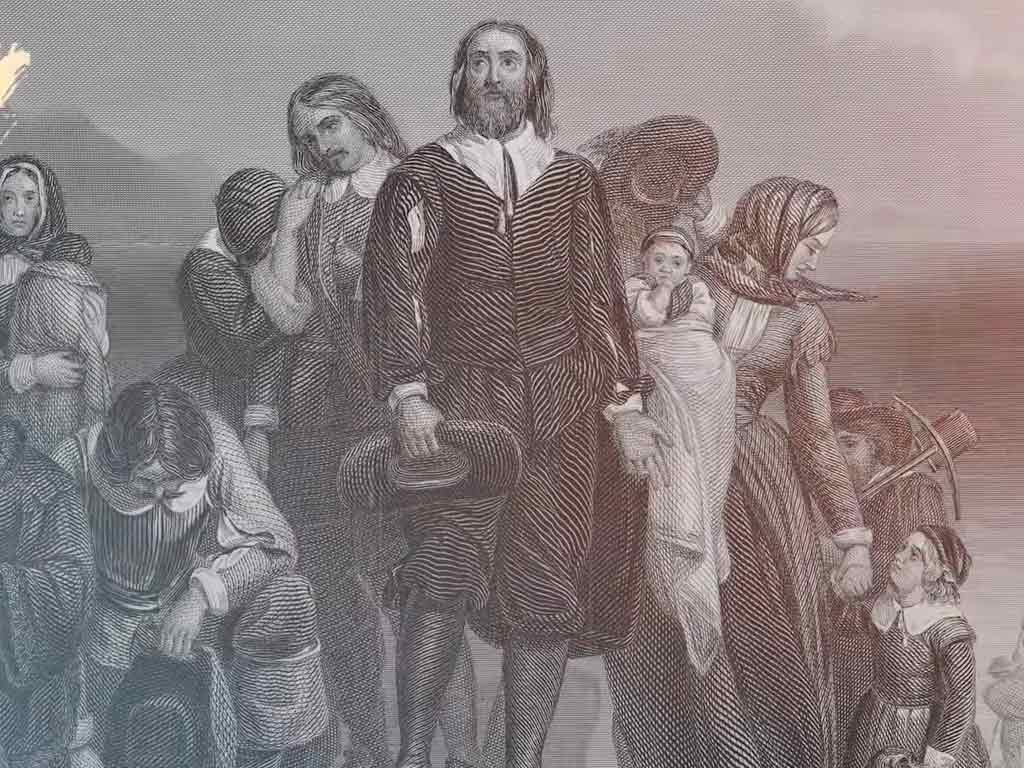
Boston’s origins lie in the Puritan settlement of 1630, led by Governor John Winthrop. This marks the city’s founding as a part of the Massachusetts Bay Colony.
The establishment of Boston as a center for Puritan theology and governance laid the groundwork for its religious and cultural identity.
Boston Massacre (1770)
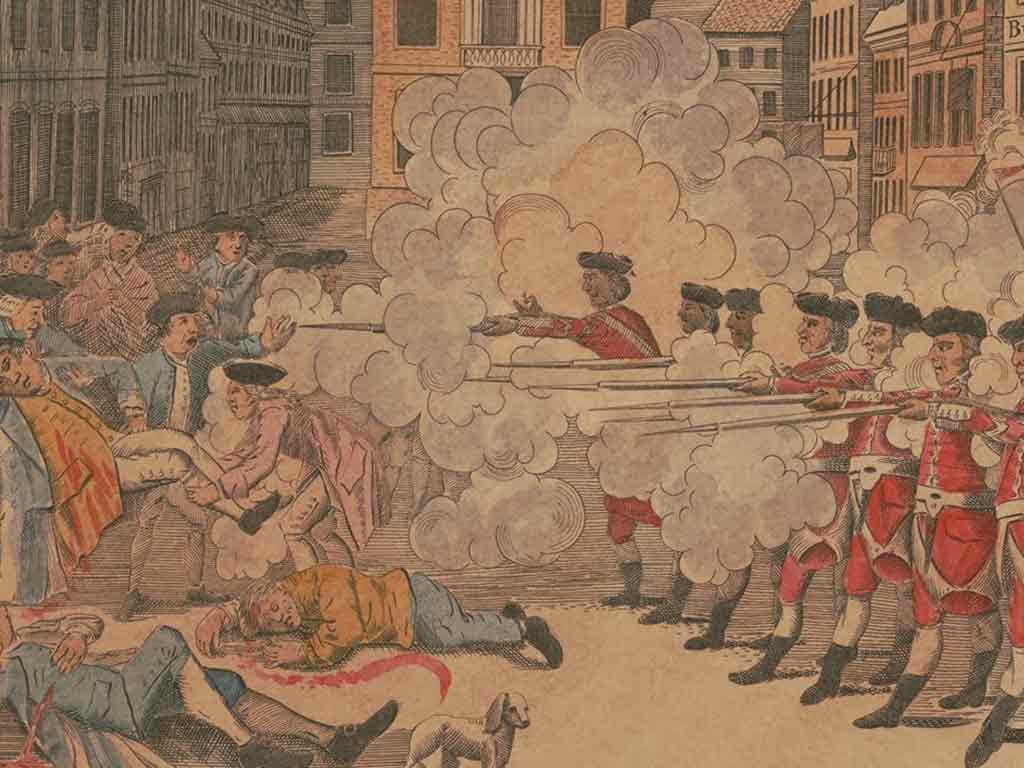
The Boston Massacre of 1770 stands as a defining moment in pre-revolutionary history. Tensions between colonists and British soldiers erupted, leading to the tragic killing of five civilians.
The event fueled anti-British sentiment and served as a catalyst for the revolutionary spirit that would later sweep across the colonies.
Boston Tea Party (1773)
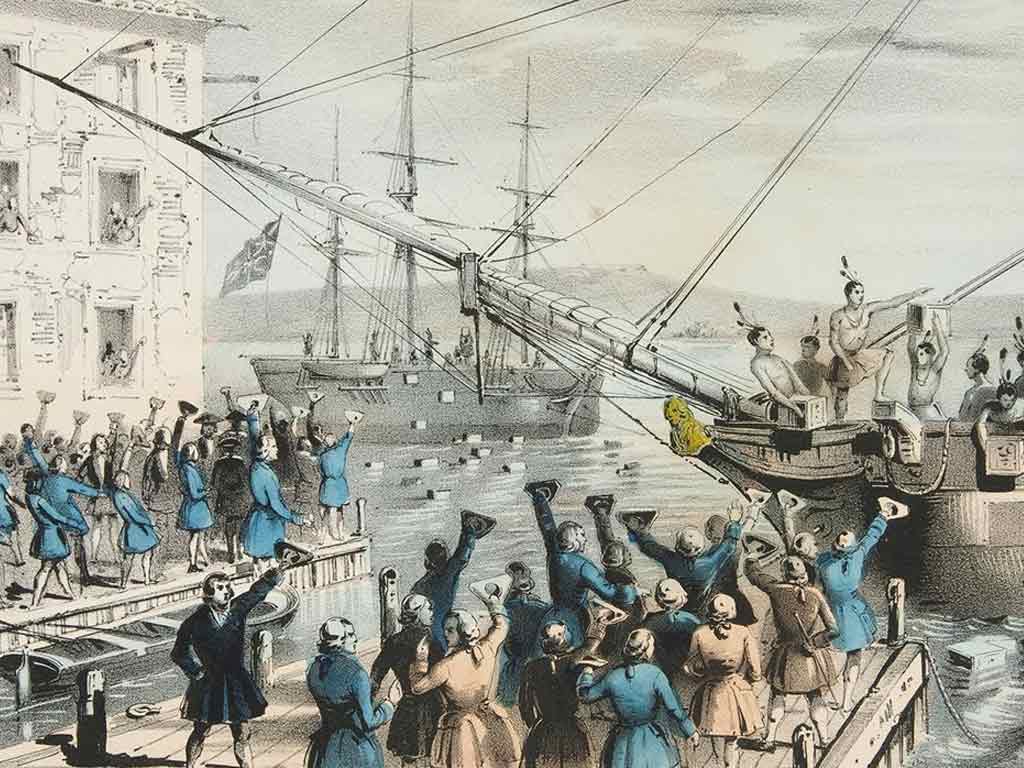
The iconic Boston Tea Party remains a symbol of colonial resistance. In 1773, colonists, protesting British taxation, dumped crates of tea into Boston Harbor.
This act of defiance escalated hostilities and played a pivotal role in galvanizing support for the burgeoning revolutionary movement.
Battles of Lexington and Concord (1775)

The Battles of Lexington and Concord marked the outbreak of the American Revolution. As the first military engagements, these battles unfolded on the outskirts of Boston.
Minutemen faced British troops, signaling the beginning of a protracted conflict that would shape the destiny of the fledgling nation.
Cultural and Educational Legacy (19th century onward)
Boston’s history extends beyond revolutionary events to a legacy of intellectual and cultural contributions. In the 19th century, the city became a beacon of education, with the establishment of Harvard University in 1636 and the Boston Athenaeum in 1807.
Irish immigration and the Boston Irish (19th century)
Boston witnessed a significant influx of Irish immigrants during the 19th century, driven by the Irish Potato Famine. The Irish, facing harsh conditions, sought refuge in Boston, contributing to the city’s demographic diversity.
However, they faced discrimination and prejudice, and their struggle for acceptance and integration became an integral part of Boston’s social history.
Abolitionist Movement and Anti-Slavery Activism (19th century)
Boston played a pivotal role in the abolitionist movement, with prominent figures like William Lloyd Garrison advocating for the end of slavery. The city became a hotbed of anti-slavery activism, hosting rallies and speeches and serving as a hub for the Underground Railroad.
Boston’s commitment to the abolitionist cause solidified its reputation as a center for progressive ideals.
Industrialization and Economic Growth (19th century)
The 19th century brought industrialization to Boston, transforming the city’s economic landscape. Textile mills, factories, and a burgeoning shipping industry fueled economic growth.
The construction of the Boston and Lowell Railroad in 1835 connected the city to the expanding railway network, further propelling Boston into a thriving industrial and commercial center.
Boston Strangler Murders (1960s)
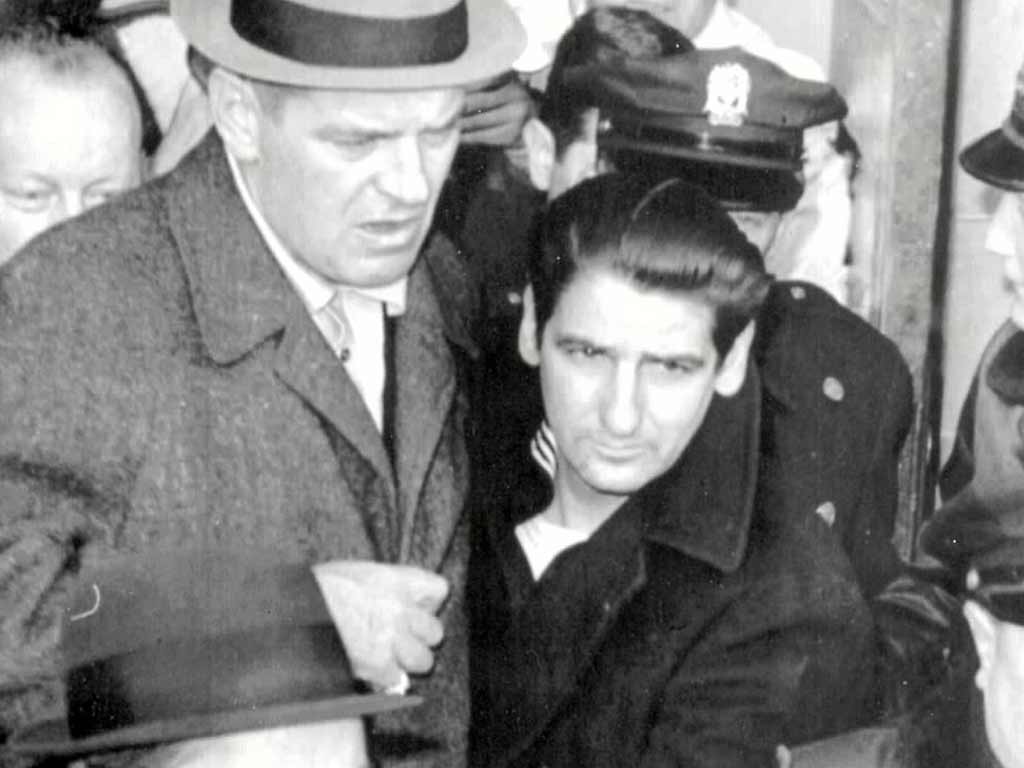
The Boston Strangler murders, occurring between 1962 and 1964, cast a dark shadow over the city. Thirteen women were killed in a series of gruesome crimes, raising concerns about safety and security.
The investigation, which led to the arrest of Albert DeSalvo, remains a haunting chapter in Boston’s history, leaving an indelible mark on the city’s psyche.
Boston Marathon Bombing (2013)
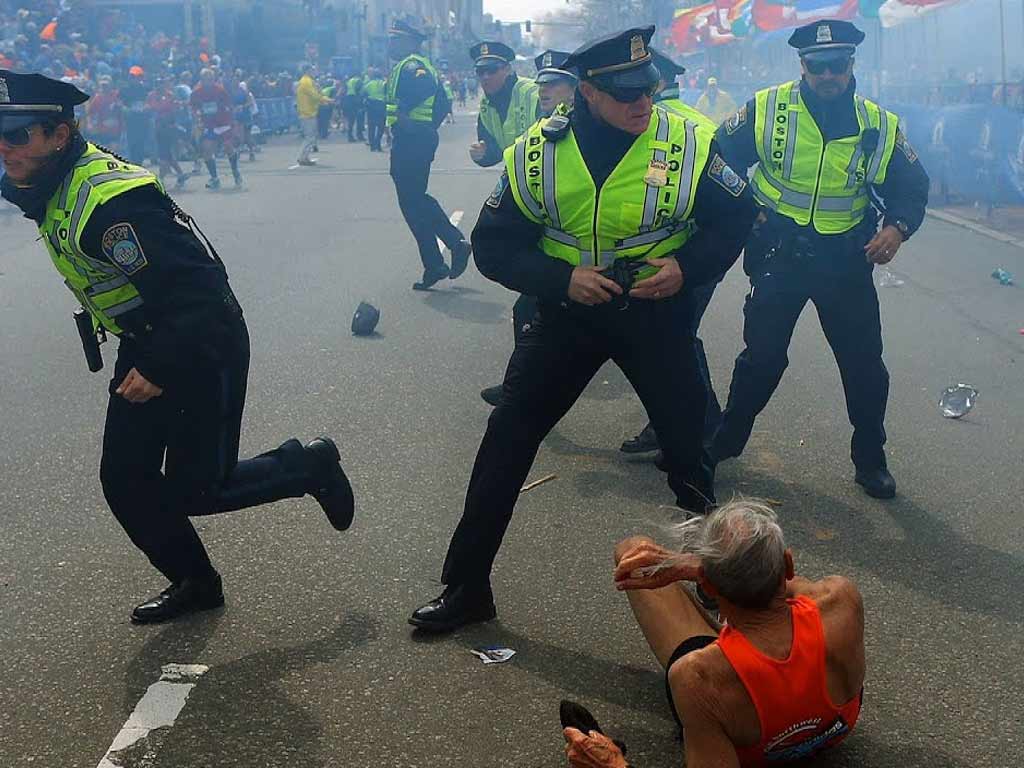
In a tragic modern chapter, the Boston Marathon Bombing of 2013 shook the city to its core. Two bombs exploded near the finish line of the iconic marathon, resulting in casualties and injuries.
The resilience displayed by the people of Boston and the subsequent capture of the perpetrators underscored the city’s strength and solidarity in the face of adversity, leaving an enduring impact on its contemporary history.
Boston’s Educational Hub
Boston’s educational legacy expanded in the 20th century, solidifying its status as an academic hub. The city is home to numerous prestigious institutions, including MIT and Boston University.
This educational prowess has not only contributed to advancements in science and technology but has also attracted a diverse student population, shaping the city’s vibrant intellectual landscape.
Busing Crisis (1970s)
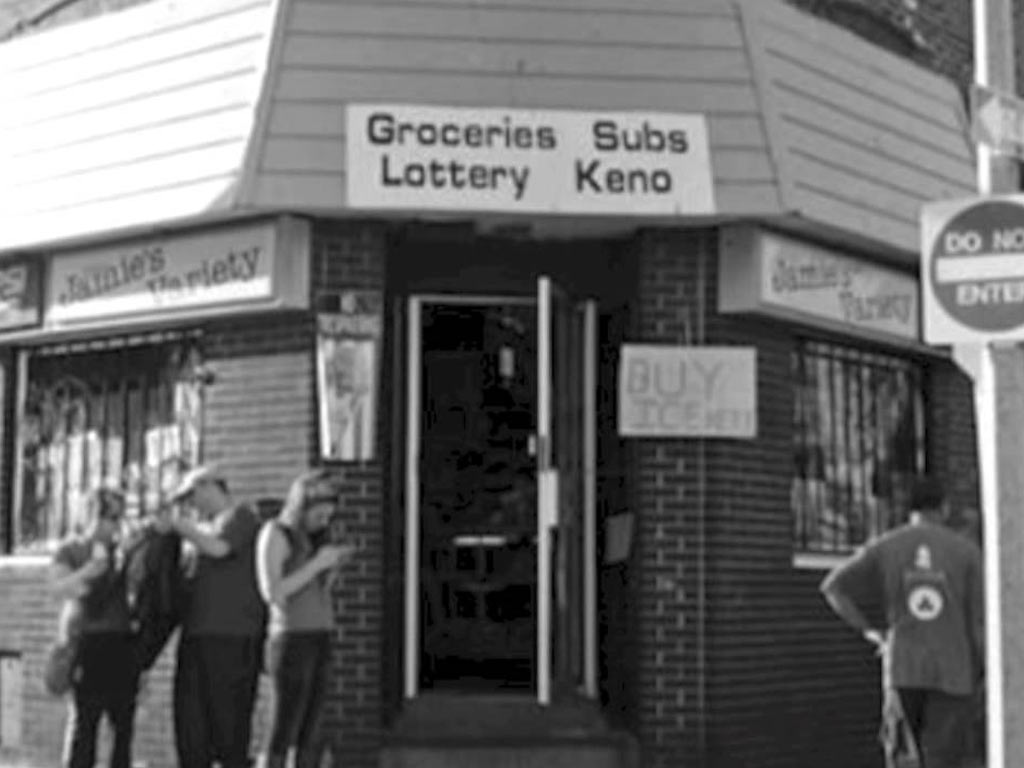
The 1970s saw Boston engulfed in the busing crisis, a tumultuous period marked by racial tensions and protests. The court-ordered desegregation of schools led to clashes and unrest, highlighting deeply rooted racial divisions.
The busing crisis underscored the challenges of achieving racial equality and the need for ongoing efforts toward fostering inclusivity.
Big Dig Project (1980s-2000s)

The Big Dig, one of the most significant infrastructure projects in U.S. history, reshaped Boston’s landscape. The initiative aimed to alleviate traffic congestion by burying the Central Artery underground.
Completed in the early 2000s, the project transformed the city’s transportation system, enhancing accessibility and urban aesthetics.
Boston Red Sox and Fenway Park (20th century-present)
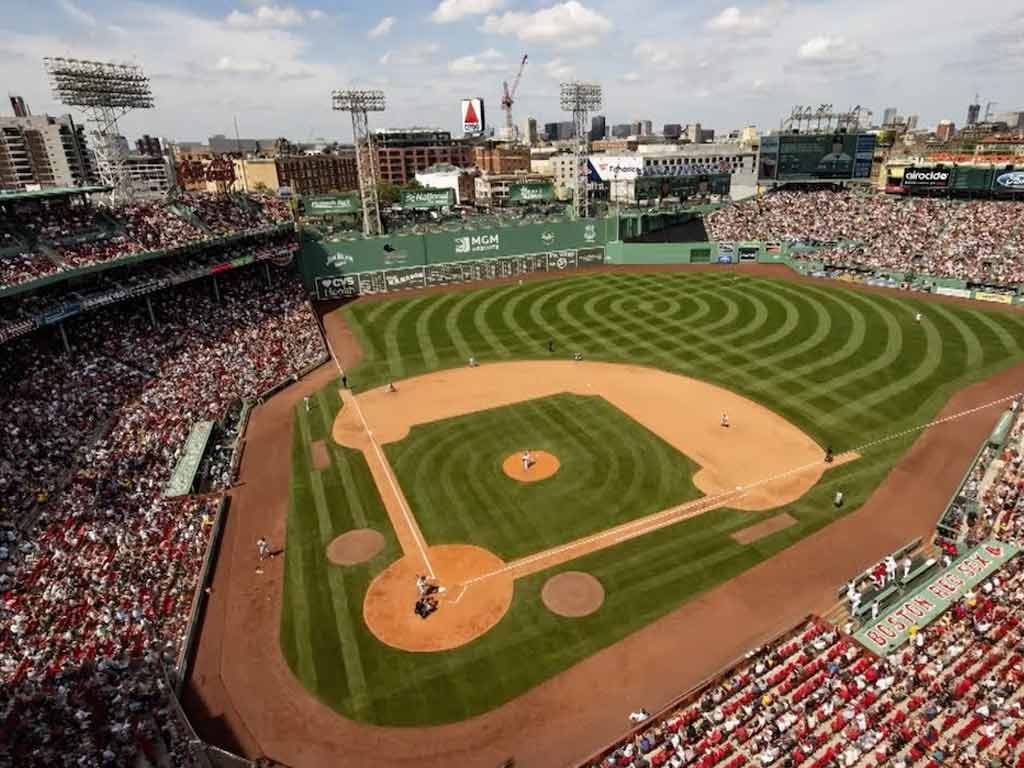
Boston’s sports culture is synonymous with the Boston Red Sox, one of the oldest baseball teams in the nation. Fenway Park, the team’s iconic home, is a historic venue and a testament to the city’s enduring love for baseball.
The Red Sox’s successes and enduring fan loyalty contribute to the cultural fabric of Boston.
Innovation and Technology Hub (21st century)
Boston has evolved into a global innovation and technology hub in the 21st century. The city’s concentration of tech companies, startups, and research institutions has fueled advancements in various fields.
The Massachusetts Institute of Technology (MIT) continues to be a driving force, solidifying Boston’s reputation as a leader in technological innovation and research.
What Is Boston Best Known For?
Boston, a city steeped in history and cultural richness, is celebrated for its multifaceted contributions to American heritage. Here are some reasons of what makes Boston is best known for:
Historical Significance and Revolutionary Spirit
Renowned for its role in the American Revolution, Boston is a symbol of revolutionary fervor. Iconic events like the Boston Tea Party and the Battles of Lexington and Concord unfolded in its streets, shaping the nation’s destiny and solidifying Boston’s status as a historical beacon.
Academic Excellence and Higher Learning
Boston is synonymous with academic prestige, boasting institutions like Harvard University and MIT. Its concentration of world-class universities and colleges has made the city a global hub for higher education and research, contributing significantly to advancements in various fields.
Cultural Institutions and Museums
The city’s cultural richness is evident in its diverse museums and institutions. From the Museum of Fine Arts to the Boston Symphony Orchestra and the Isabella Stewart Gardner Museum, Boston is a cultural haven, offering residents and visitors a vibrant tapestry of artistic experiences.
Sports Legacy and Fenway Park
Boston’s sports legacy is encapsulated in the beloved Red Sox and their iconic home, Fenway Park. The city’s passionate sports culture extends beyond baseball, with teams like the Celtics, Bruins, and Patriots contributing to a fervent fan base and a rich sports history.
Irish Heritage and St. Patrick’s Day Celebration
Boston’s Irish heritage is a defining aspect of its cultural identity. The city hosts one of the largest St. Patrick’s Day celebrations in the country, with parades, events, and a strong sense of community.
The influence of Irish immigrants has left an indelible mark on Boston’s social and cultural fabric.
Innovation Hub and Technology Center
Boston has emerged as a global innovation hub, with a concentration of tech companies, startups, and research institutions.
The Massachusetts Institute of Technology (MIT) plays a pivotal role in driving technological advancements, making Boston a leader in innovation and a focal point for the tech industry.
Healthcare and Medical Research
The city’s renowned medical institutions, including Massachusetts General Hospital and the Dana-Farber Cancer Institute, underscore Boston’s prominence in healthcare and medical research.
The city’s medical community continues to make groundbreaking contributions to the field, enhancing its reputation as a center for medical excellence.
In essence, Boston’s fame rests on its historical significance, academic prowess, cultural institutions, sports legacy, Irish heritage, innovation hub, and contributions to healthcare and medical research.
This multifaceted identity cements Boston’s place as a dynamic and influential city in the United States.
FAQs
How did Boston contribute to the American Revolution?
Boston played a pivotal role in the American Revolution, witnessing events like the Boston Tea Party and Boston Massacre and serving as a hotbed of revolutionary fervor that culminated in the Battles of Lexington and Concord.
What is Boston’s educational legacy?
Boston boasts a distinguished educational legacy, home to prestigious institutions like Harvard University (founded in 1636) and MIT, contributing significantly to academia and research.
How did Irish immigration shape Boston’s history?
In the 19th century, Irish immigrants, fleeing the Potato Famine, significantly influenced Boston’s social fabric, contributing to its cultural diversity and leaving a lasting impact on the city’s identity.
What is Boston’s role in innovation and technology?
Boston has emerged as a global innovation hub, with institutions like MIT driving advancements in technology, making the city a leader in innovation, research, and technological development.
How has Boston’s cultural richness evolved?
Boston’s cultural richness is evident in its museums, historical sites, and celebrations, reflecting its diverse history, from the Boston Symphony Orchestra to the St. Patrick’s Day Parade, showcasing the city’s vibrant cultural tapestry.
Conclusion
The history of Boston, Massachusetts, is a dynamic narrative that encapsulates the very essence of the American experience.
From its early colonial foundations to its pivotal role in birthing the nation’s independence, Boston has been a cradle of ideas, resilience, and cultural diversity.
The echoes of historical events resound through its streets, reminding us of the city’s enduring significance.
Whether examining its educational prominence, revolutionary spirit, or contributions to innovation, the history of Boston remains a captivating journey through time, illustrating the city’s ability to adapt, thrive, and leave an indelible mark on the annals of American history.
Jaclyn Lowe